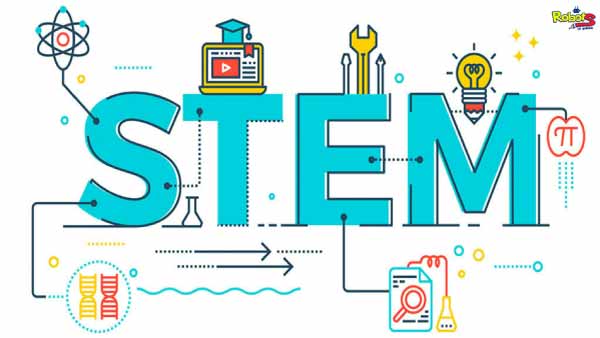Increased investment in STEM (science, technology, engineering and mathematics) education to prepare students for careers in technology-related fields.
Investment in STEM education is an important initiative to prepare students for careers in technology-related fields. Today, technology is rapidly changing the world and STEM skills are increasingly important to success in the global economy.
STEM education enables students to acquire skills in science, technology, engineering, and mathematics, allowing them to develop their ability to solve problems and foster creativity. In addition, STEM education helps students develop critical thinking and problem-solving skills, which are valuable skills for any career.
By investing in STEM education, you can increase the number of students interested in technology-related fields and, in turn, prepare students for careers in these fields. Students can learn programming, design, and data analysis skills, enabling them to be better prepared for the demands of the current and future job market.
Investments in STEM education can also help foster innovation and economic growth. With a focus on STEM education, companies can find more qualified employees and, in turn, drive economic growth through job creation and technological innovation.
In short, investment in STEM education is important to prepare students for careers in technology-related fields and foster economic growth and innovation. By investing in STEM education, students can be provided with the skills and training needed to succeed in today’s and tomorrow’s job market.
Skills in science
Science skills are those that enable people to understand the world around us through the use of the scientific method and the application of scientific knowledge. Some of the skills in science include:
Observation: The ability to observe carefully and in detail the world around us, with a focus on patterns and relationships.
Question formulation: the ability to ask scientific questions and design experiments to answer them.
Experimentation: The ability to design and conduct experiments, using scientific tools and equipment to collect data.
Data analysis: The ability to analyze and understand data collected during experiments, using statistics and graphs to identify patterns and relationships.
Interpretation of results: the ability to interpret the results of an experiment and draw conclusions based on scientific evidence.
Scientific communication: the ability to clearly and effectively communicate the results of scientific research, using appropriate scientific terms and concepts.
Critical thinking: The ability to critically evaluate scientific evidence, consider different perspectives, and reach well-founded conclusions.
These skills are essential in the practice of science and can be applied in a variety of fields, from scientific research to decision-making in everyday life. In addition, understanding these skills can help people make more informed decisions and become more responsible and engaged citizens.
Technology skills
Technology skills are those that enable people to use and apply technology to solve problems, improve processes, and carry out tasks in everyday life. Some of the skills in technology include:
Ability to use technological tools and equipment
The ability to use technological devices and tools to perform specific tasks, such as the use of software, hardware, mobile devices, and other electronic equipment.
Troubleshooting technology problems
The ability to identify and fix technology problems, such as software failures, connectivity issues, and equipment configuration errors.
Design and development of software and applications
The ability to create and develop software and computer applications using programming languages, platforms, and software development tools.
Cybersecurity
The ability to protect systems and technological data, including implementing security measures and identifying vulnerabilities in system security.
Data analysis and visualization
The ability to collect, analyze, and visualize data using technological tools, such as spreadsheets and data visualization software.
Online communication and collaboration
The ability to use technological tools to communicate and collaborate online, such as email, instant messaging, video conferencing, and online collaboration platforms.
Digital literacy
The ability to understand and use technology effectively, including online browsing, file management, information search, and online privacy.
These skills are increasingly important in today’s world as technology continues to evolve and become an increasingly integral part of everyday and working life. In addition, understanding and applying these skills can open up new career opportunities and help people become more productive and efficient in their work and personal lives.
Engineering skills
Engineering skills are those that enable people to apply scientific and mathematical principles to design, build, and improve systems, structures, and processes. Some of the skills in engineering include:
- Critical thinking: The ability to analyze and evaluate complex problems, identify possible solutions, and select the best solution.
- Ability in mathematics: The ability to use and apply mathematical principles, including algebra, geometry, calculus, and statistics.
- Science Ability: The ability to use and apply scientific principles, including physics, chemistry, and biology, to solve problems.
- Design Skill: The ability to design effective and efficient solutions, including creating models, utilizing design software, and conducting tests and prototypes.
- Technology Skill: The ability to use technological tools to design and build solutions, including the use of engineering software, manufacturing tools, and measurement equipment.
- Project Management Skill: The ability to plan, organize, and direct engineering projects, including resource management and decision-making.
- Communication Skills: The ability to communicate effectively with colleagues, clients, and other stakeholders in the engineering project, including the ability to present and advocate for solutions.
These skills are important in a variety of engineering fields, from mechanical engineering to civil engineering to electrical engineering. People with engineering skills can contribute to solving complex problems, improving the efficiency and safety of systems, and creating innovative new solutions. Engineering skills are also highly valued in the industry and can open up exciting, well-paying career opportunities.
Math skills
Math skills are those that allow people to understand and apply mathematical concepts in a variety of situations. Some of the skills in math include:
- Logical reasoning: The ability to reason and analyze information logically, identifying patterns and relationships.
- Problem solving: The ability to apply mathematical concepts to solve problems in a variety of situations, including everyday situations and professional situations.
- Numerical ability: The ability to perform basic mathematical operations, such as adding, subtracting, multiplying, and dividing, accurately and quickly.
- Algebraic Ability: The ability to use and manipulate algebraic expressions, including solving equations and simplifying expressions.
- Geometric ability: The ability to understand and apply geometric concepts, such as measuring angles, identifying shapes, and understanding the properties of figures.
- Statistical Ability: The ability to use and apply statistical concepts, including collecting and analyzing data, identifying trends, and making predictions.
- Visualization Ability: The ability to represent and visualize mathematical concepts using graphs and diagrams.
These skills are important in a variety of fields, including science, technology, engineering and mathematics (STEM), economics, finance, and other career fields. People with math skills can contribute to solving complex problems, making informed decisions, and identifying trends and patterns in data. Skills in mathematics are also highly valued in the industry and can open up exciting and well-paying career opportunities.


